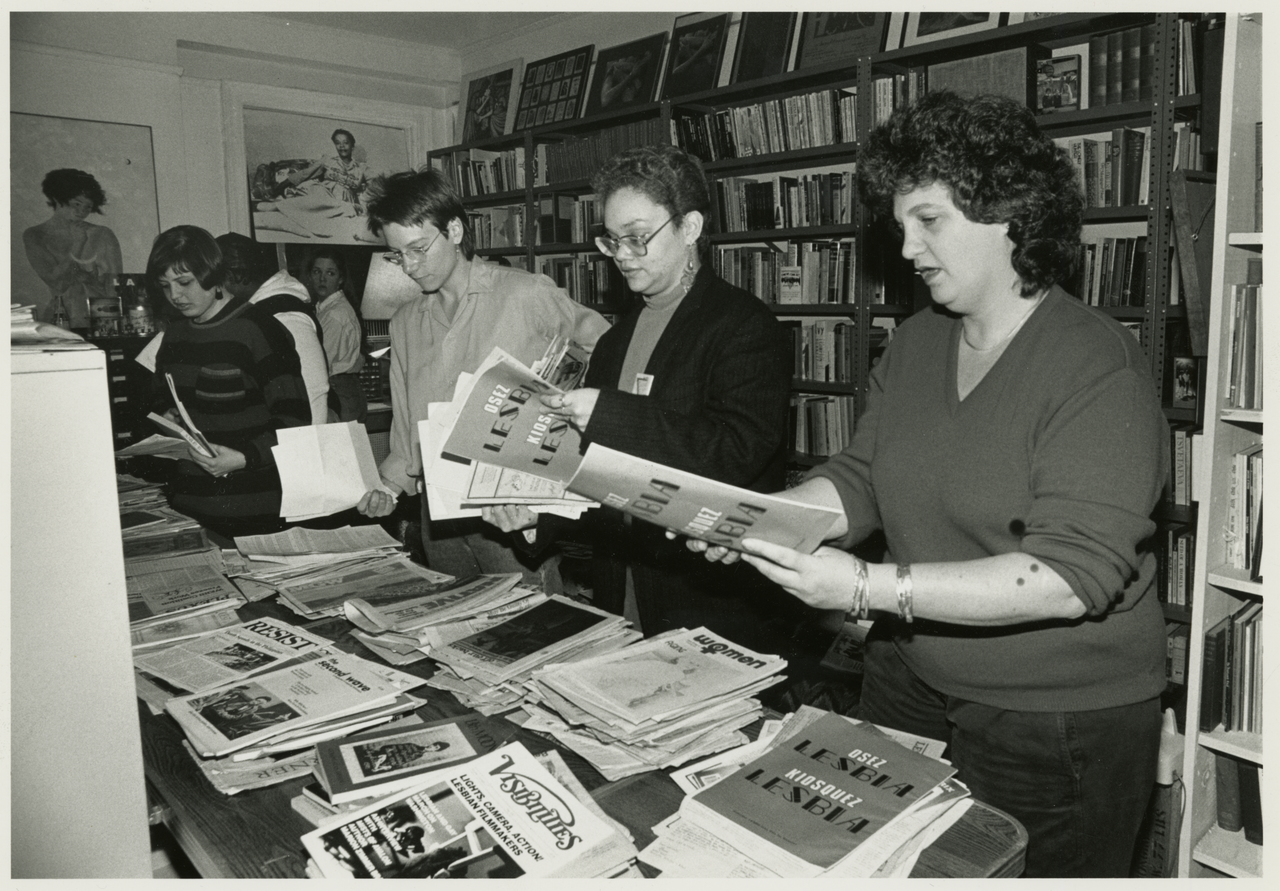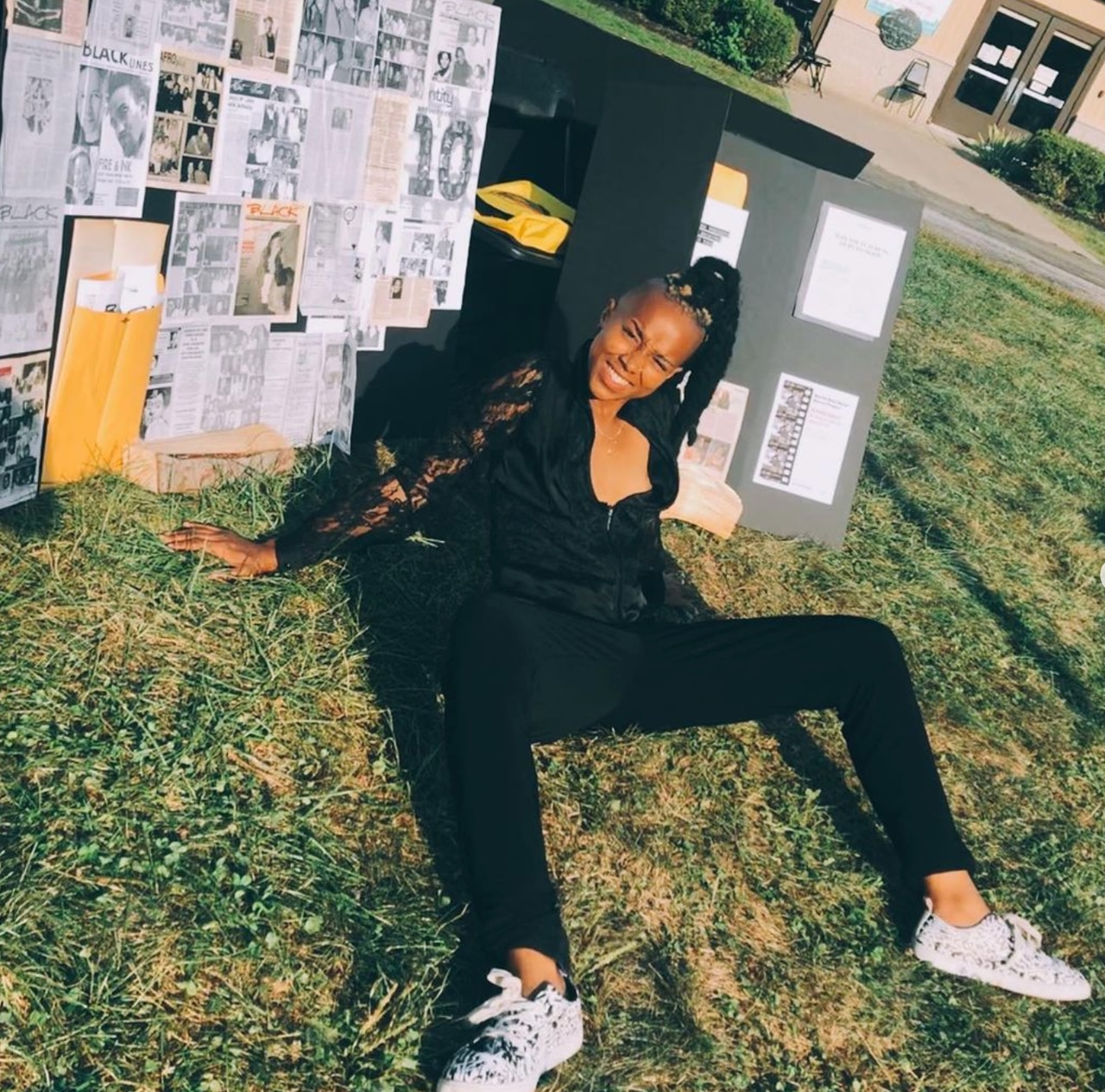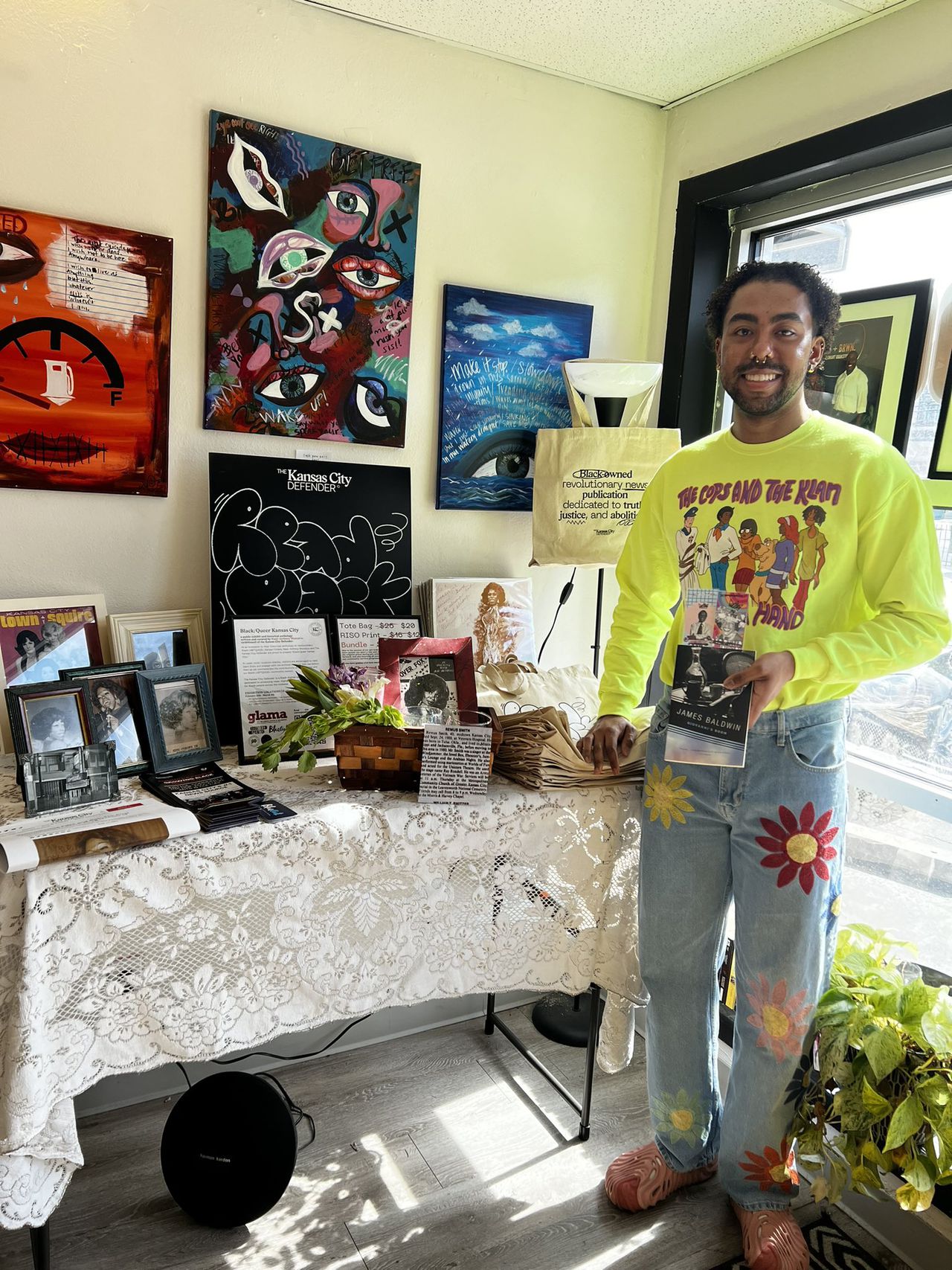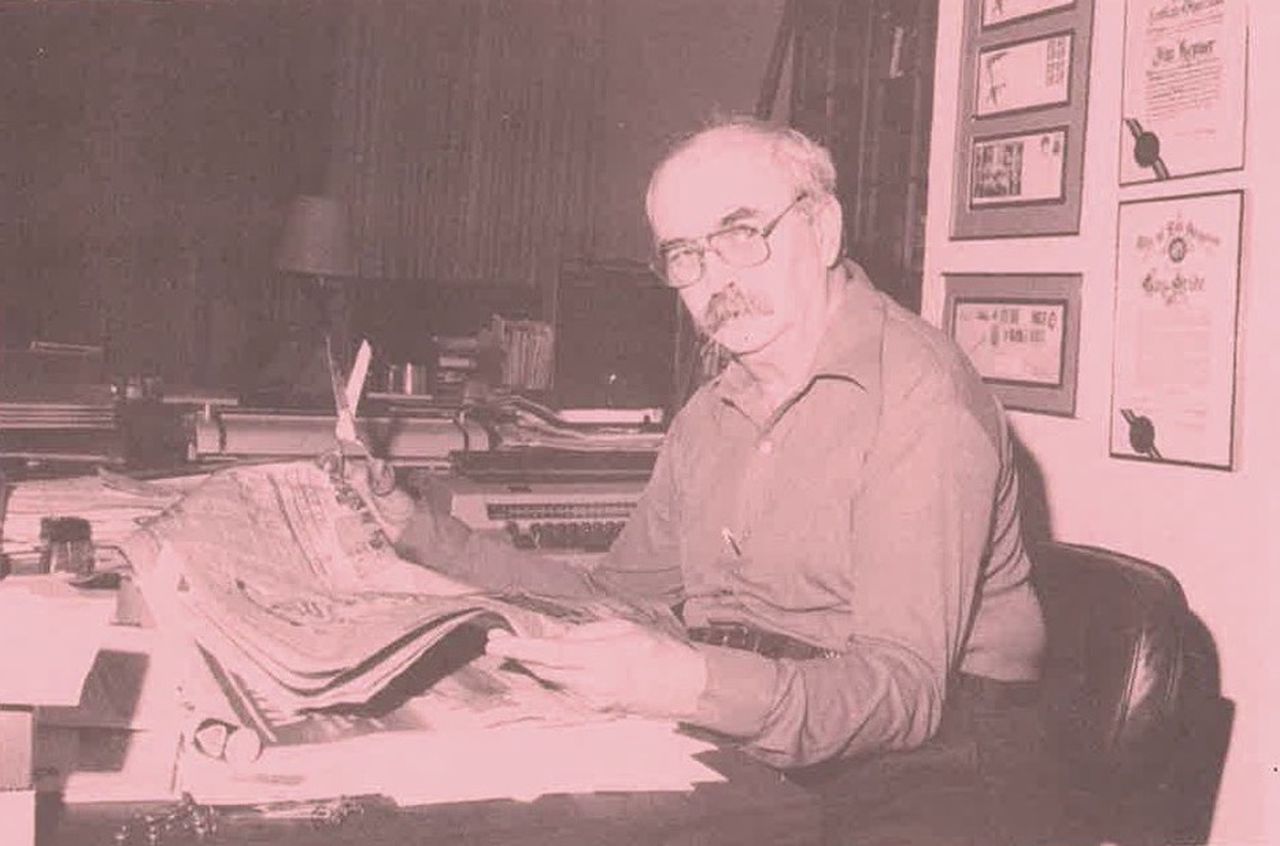From the Queer Archives: A closer look at LGBTQ archives and the voices they preserve
Last month was LGTBQ History Month, a chance to reflect on the history collected in queer archives around the country and celebrate our history in the making. But we don’t just celebrate in October.
A celebration of community history requires an understanding of how we gathered our history in the first place paired with the work we are still doing today. In the early 1970s at the outset of the Gay Liberation Movement, libraries and archives were not collecting LGBTQ materials, whether as books in their stacks to check out and read or archival collections to research and learn from. Across the country it was LGBTQ community members that took it upon themselves to collect and preserve our shared history, founding community archives in their apartments, homes, small storefronts, and community centers.
Here is a snapshot of the two earliest LGBTQ community archives that still stand today and a look at some of the newest queer archiving projects that center diverse voices intersecting queer and trans history.
ONE Archives (Los Angeles, Calif.)
Jim Kepner at ONE ArchivesUniversity of Minnesota Libraries
Jim Kepner was a private collector of gay and lesbian history and his collecting dates to the early 1940s when he moved from Galveston, Texas to San Francisco. Kepner eventually moved south to Los Angeles and started working for ONE Inc. in 1951, the entity that published ONE Magazine beginning in 1953, the earliest gay magazine published in the U.S. It wasn’t until 1971 during the Gay Liberation Movement that Kepner opened his personal collection of gay and lesbian materials for research.
The initial name of his collection was the Western Gay Archives, run out of his apartment and signifying the geographic focus of his personal collection on Western U.S. gay and lesbian history. Strengths of Kepner’s early collection were print materials; pulp novels, books, magazines, and newspapers from the Homophile Movement of the 1950s and 1960s, along with ephemera – the buttons, t-shirts, posters, and banners quintessential to documenting gay and lesbian history and culture. Kepner’s collection moved several times, each with a name change, reflecting the growth of his collection.
A storefront in Hollywood became the National, and then International, Gay & Lesbian Archives. In 1994, Kepner’s collection merged with ONE Inc. and became the ONE National Gay & Lesbian Archives. Today, the ONE Archives is housed on the University of Southern California’s campus and is one of the largest LGBTQ archival collections in the world.
Lesbian Herstory Archives (Brooklyn, NY)

Joan Nestle (r), Polly Thistlethwaite and others sorting periodicals in the Lesbian Herstory Archives.University of Minnesota Libraries
Founded in 1974, the Lesbian Herstory Archives is devoted to documenting the history of lesbian lives in the U.S. and around the world. The Lesbian Herstory Archives first grew in the Upper West Side Manhattan apartment of one founder Joan Nestle after lesbians active in the New York chapter of the Gay Academic Union decided to embark on collecting their history.
It was quintessential for lesbian herstory to have its own devoted space as many other gay and lesbian archives projects were male centric in both their collecting efforts and leadership. The Lesbian Herstory Archives is a grassroots, all volunteer-led organization that has privileged autonomy and community leadership throughout its nearly fifty-year history.
After outgrowing the confines of Nestle’s apartment in the 1980s, the Lesbian Herstory Archives set out to purchase their own building. Through community fundraising and support, they were able to buy a brownstone in Park Slope, Brooklyn, which opened to the public in April 1993.
Still nestled in this brownstone today and cared for by lesbians young and old, including Deb Edel one of the original founders nearing her 80s, the Lesbian Herstory Archives is a homey space to learn about lesbian herstory on a couch in the library on the first floor or at a table surrounded by filing cabinets and boxes full of publications on the second.
The 1970s and 80s saw a surge or queer community archives being founded across the country, namely in larger cities; San Francisco, Los Angeles, New York, and Chicago. Yet today we’re seeing another surge of community archives and archiving projects that preserve and share nuanced LGBTQ pasts by region and identity.
Black Lesbian Archives

Maekdo tabling at Ohio Lesbian Fest 2019.University of Minnesota Libraries
Launched in June of 2017 by Krü Maekdo, the Black Lesbian Archives has focused on collecting and touring the history of Black lesbians around the country. The archive focuses on both gathering archival materials and uplifting the materials in archives that already preserve Black lesbian herstory.
Through tours around the country, pop-up exhibits, and collaborations with existing archives, the Black Lesbian Archives facilitates centralizing Black lesbian and women’s experiences in the U.S. The purpose of Maekdo’s project is “For Black Lesbians to build Community, Educate & Preserve our Culture.”
Black/queer Kansas City {B/qKC}

Montalvo 2023 March Black_Queer KC History Exhibit at BLK + BRWN Bookstore.University of Minnesota Libraries
In Kansas City a new Black queer digital archives has emerged led by Nasir Montalvo, Managing Editor of the Kansas City Defender. Black/queer Kansas City {B/qKC} is the result of Montalvo’s work grown out of the necessity to dig deeper to find local Black queer history.. {B/qKC}is a digital archive “educating the Kansas City community on the contributions of local Black LGBTQIA2S+ community members–in turn, liberating their histories from racism and homophobia-fueled erasure.”
Since launching in April 2022, {B/qKC} Montalvo has curated physical exhibits to engage the community in their local Black queer history and facilitate excitement around collecting and retelling these histories. Montalvo collaborates with the Gay and Lesbian Archives of Mid-America to research and preserve Black queer history and documents the history they are uncovering through digital archiving, storytelling, and publishing zines with astringent press.
It is impossible to imagine our understanding of LGBTQ history without community archives and community members like Jim Kepner, Joan Nestle, and Deb Edel that had the foresight to collect our history when it was continually being hidden or tossed away in the 1970s, while acknowledging the critical and continued work of archiving Black LGBTQ experiences led by Krü Maekdo and Nasir Montalvo in the present.
From the Queer Archives is a monthly post dedicated to LGBTQ history by culling queer and trans history from archival materials across the United States. Reckon focuses especially in the Midwest, a region where the experiences, contributions, and struggles of queer people and communities have been overlooked in historical narratives.
This series is critical in our current political and cultural moment where LGBTQ history, books, and representation are being removed from schools and public libraries. It is through historical visibility that LGBTQ people can understand this moment and themselves as part of a long legacy of queer and trans community-building.
Aiden M. Bettine is a trans archivist and historian. He is the Curator of the Tretter Collection in GLBT Studies at the University of Minnesota Libraries and the co-founder of Late Night Copies Press, a Minneapolis-based micro press that publishes zines on queer and trans history, libraries, and archives. He specializes in researching and writing about queer and trans history throughout the Midwest.
